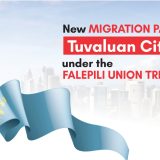Australia’s Skilled Migration: A New Horizon for International Talent
Australia has long been known for its vibrant economy, diverse culture, and high-quality education system. In recent years, it has emerged as a global hotspot for skilled migration, attracting top-tier international talent from various industries. This article explores the latest developments in Australia’s skilled migration landscape and how international professionals can leverage this new era of opportunities.
Table of Contents:
- Introduction
- Australia’s Growing Appeal
- The Role of Skilled Migration
- The Points-Based System
- Understanding the Points System
- Key Eligibility Criteria
- Occupation Lists
- Critical Skills in Demand
- The Impact on Visa Options
- Visa Pathways
- Subclass 189 – Skilled Independent Visa
- Subclass 190 – Skilled Nominated Visa
- Subclass 491 – Skilled Work Regional (Provisional) Visa
- The New Global Talent Visa
- Attracting Exceptional Talent
- Benefits and Eligibility
- Regional Opportunities
- Regional Sponsored Migration Scheme (RSMS)
- Advantages of Regional Migration
- State Nomination
- State Nomination Programs
- How to Secure a State Nomination
- Skills Assessment
- Importance of Skills Assessment
- Recognized Assessing Authorities
- Expression of Interest (EOI)
- Submitting an EOI
- EOI Selection Process
- Tips for a Successful Application
- Preparing a Strong Application
- Professional Advice and Guidance
- Conclusion
- Seizing the Opportunity
- Australia’s Bright Future for Skilled Migrants
Introduction
Australia’s Growing Appeal: Australia’s robust economy, world-class healthcare, and exceptional quality of life make it an attractive destination for skilled professionals looking to further their careers and personal lives. With a strong commitment to immigration, Australia welcomes international talent with open arms.
The Role of Skilled Migration: Skilled migration has become a cornerstone of Australia’s economic and demographic growth. It not only addresses skill shortages but also contributes significantly to the nation’s innovation and global competitiveness.
The Points-Based System
Understanding the Points System: Australia employs a points-based system to assess the eligibility of skilled migrants. Points are awarded based on factors such as age, English proficiency, work experience, and qualifications.
Key Eligibility Criteria: To qualify for skilled migration, applicants must meet specific criteria, including having a relevant occupation listed on Australia’s skilled occupation lists.
Occupation Lists
Critical Skills in Demand: Australia’s skilled occupation lists are dynamic and reflect the country’s evolving labor market needs. Understanding which occupations are in demand is crucial for prospective migrants.
The Impact on Visa Options: The demand for specific skills can impact the availability of visa pathways. Skilled professionals should be aware of which visas align with their qualifications.
Visa Pathways
Subclass 189 – Skilled Independent Visa: This visa allows skilled workers to live and work anywhere in Australia without the need for employer sponsorship or state nomination.
Subclass 190 – Skilled Nominated Visa: State or territory governments nominate individuals for this visa, granting them the right to live and work in specific regions.
Subclass 491 – Skilled Work Regional (Provisional) Visa: This regional visa option is designed to address skill shortages in rural and regional areas, offering a pathway to permanent residency.
The New Global Talent Visa
Attracting Exceptional Talent: Australia’s Global Talent Visa targets outstanding professionals, entrepreneurs, and innovators, offering them a streamlined pathway to permanent residency.
Benefits and Eligibility: Eligible candidates for the Global Talent Visa can enjoy expedited processing and access to Australia’s thriving innovation ecosystem.
Regional Opportunities
Regional Sponsored Migration Scheme (RSMS): Regional areas present unique opportunities for skilled migrants. The RSMS program provides pathways to permanent residency while supporting regional development.
Advantages of Regional Migration: Regional areas offer a high quality of life, affordable living costs, and career growth prospects, making them an attractive choice for skilled professionals.
State Nomination
State Nomination Programs: State and territory governments can nominate skilled migrants based on their specific labor market needs, providing additional pathways to PR.
How to Secure a State Nomination: Understanding the state nomination process and requirements is essential for aspiring migrants seeking state sponsorship.
Skills Assessment
Importance of Skills Assessment: Skills assessment is a critical step in the migration process, ensuring that applicants meet the necessary standards for their chosen occupation.
Recognized Assessing Authorities: Different occupations have designated assessing authorities responsible for evaluating qualifications and experience.
Expression of Interest (EOI)
Submitting an EOI: The Expression of Interest system allows individuals to showcase their skills and qualifications to prospective employers and state/territory governments.
EOI Selection Process: Understanding how the EOI selection process works can help applicants improve their chances of receiving an








